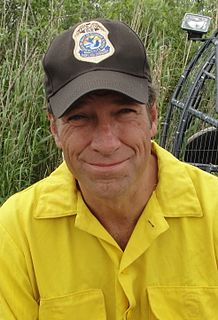A Quote by Cory Gardner
From what we understand about participation by women and minorities, we need to do a better job of exposing people early in their careers to STEM fields.
Quote Topics
Related Quotes
The average person doesn't understand what a stem cell is. There's a lack of health literacy in our nation. So the public can't really get into this dialogue because they don't understand the complexity of stem cells, not the faith-based approach, not the ideological or political, but the science behind stem cells.
American women mean a great deal to me. They're such lost souls, particularly the women of my generation. And women need so much help. They never have anyone to turn to. I help them understand how they can look better, how to do this, do that, get a job. And they're very trusting. Like little lost kids.

































